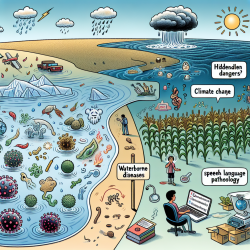Refugee children face unique challenges that can significantly impact their mental health and development. Recent research by Spaas et al. (2022) in Leuven, Belgium, sheds light on how collaborative mental health care in schools can address these challenges effectively. This blog post explores the key findings and implications of this research, providing actionable insights for practitioners aiming to improve outcomes for refugee children.
Understanding Collaborative Mental Health Care
Collaborative mental health care involves the formation of an interdisciplinary care network that includes mental health professionals, school staff, and family members. This approach aims to create a comprehensive support system that addresses the multifaceted needs of refugee children. The research conducted in Leuven highlights several critical components of this model:
- Interdisciplinary Collaboration: Involving various stakeholders, including cultural brokers, to provide a holistic understanding of the child's needs.
- Contextual Assessment: Evaluating the child's development within the framework of their migration history, cultural background, and current social conditions.
- Joint Intervention Planning: Developing and implementing intervention strategies collaboratively to ensure they are culturally sensitive and contextually relevant.
Key Findings from Leuven
The research in Leuven identified several processes and working mechanisms that contribute to the effectiveness of collaborative mental health care:
- Enhancing Family-School Interactions: By contextualizing child development within the family's migration history and social conditions, schools can foster better relationships with refugee families.
- Negotiating Cultural Differences: Collaborative care provides a platform for addressing cultural differences in child-rearing practices, which can reduce misunderstandings and improve cooperation between families and schools.
- Psycho-Educative Support: Offering psycho-education to both families and school staff helps normalize trauma responses and validates parental strategies, fostering a supportive environment for the child.
- Addressing Linguistic Development: Understanding the interplay between language acquisition and mental health allows for targeted interventions that support both educational and emotional development.
Implications for Practitioners
Practitioners can leverage these findings to enhance their work with refugee children in school settings. Here are some practical steps:
- Form Interdisciplinary Teams: Include mental health professionals, cultural brokers, and family members in the care network to ensure a comprehensive approach.
- Conduct Contextual Assessments: Evaluate the child's development within the broader context of their migration history and cultural background.
- Develop Joint Intervention Plans: Collaborate with all stakeholders to create intervention strategies that are culturally sensitive and contextually relevant.
- Provide Psycho-Education: Educate both families and school staff about trauma responses and cultural differences to foster a supportive environment.
Future Research Directions
While the research in Leuven provides valuable insights, further studies are needed to expand the evidence base for collaborative mental health care. Future research could explore:
- Systematic analysis of a larger body of clinical cases to identify central processes and working mechanisms.
- Qualitative and quantitative monitoring of collaborative care network meetings to understand intervention processes and outcomes.
- Experimental research comparing children receiving collaborative care to those in control or alternative intervention conditions to establish robust evidence of effectiveness.
To read the original research paper, please follow this link: Working With the Encounter: A Descriptive Account and Case Analysis of School-Based Collaborative Mental Health Care for Refugee Children in Leuven, Belgium.










